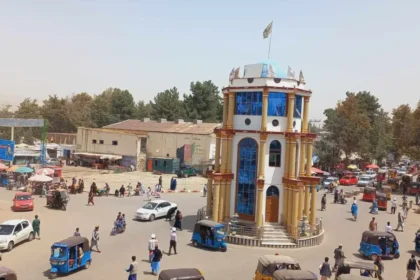RASC News Agency: The Taliban’s Ministry of Information and Culture has announced that, in a recent session of the self-styled “Supreme Council of Languages,” it decided to pursue reforms and standardization of Afghanistan’s written scripts. According to an official statement, the session was chaired by Atiqullah Azizi, Deputy Minister for Culture and Arts, and attended by senior cultural and linguistic officials. Participants reportedly discussed the “importance of languages, preservation of cultural identity, compilation of linguistic resources, and drafting of orthographic and standard writing rules.”
The ministry’s statement emphasized that seminars and workshops on the reform and “standardization” of the Dari language would be conducted, and that academic committees would be formed to “preserve and promote languages.” Taliban officials framed these initiatives as part of a long-term program to strengthen Afghanistan’s cultural and linguistic identity.
However, multiple sources in Kabul and other provinces report that the Taliban’s language policy is, in practice, an instrument for imposing Pashto across the administrative system, systematically marginalizing Persian-Dari. Reports indicate that most government ministries now require official correspondence exclusively in Pashto, severely limiting the use of Dari in administrative communication and creating widespread confusion among civil servants.
Local officials in northern provinces such as Badakhshan, Takhar, and Balkh say that letters and directives from Kabul are often issued solely in Pashto, making comprehension and execution of instructions extremely difficult. A government employee in Badakhshan told RASC:
“Most official documents from Kabul are in Pashto. None of the staff know the language, yet it is compulsory. Ironically, even some department heads, including Taliban members, cannot speak Pashto, but to appear compliant, they insist that all employees must learn it.”
Experts on Afghanistan’s culture and linguistics warn that the Taliban’s language policies not only clash with Afghanistan’s multilingual reality but also undermine administrative cohesion and deepen ethnic and cultural divides. Since regaining power, the Taliban have repeatedly implemented linguistic and cultural discrimination, including removing Dari from official signage, renaming institutions, and mandating Pashto for all government correspondence. In July of this year, a Taliban Ministry of Interior directive explicitly required all internal communication to be conducted in Pashto.
Observers note that while the Taliban publicly frame these measures as “orthographic reform and standardization,” the underlying intent is far more insidious: a gradual erasure of Persian-Dari as a lingua franca and administrative language, threatening both institutional functionality and national unity. Cultural specialists argue that the Taliban’s policies are deliberately designed to consolidate power under Pashtun ethnic dominance and marginalize non-Pashtun communities, particularly Tajik, Hazara, and Uzbek populations.
Analysts emphasize that what the Taliban present as linguistic “standardization” is, in reality, an ethno-linguistic agenda: introducing Pashto vocabulary and structures into Persian-Dari under the pretext of cultural preservation. This strategy mirrors the objectives of past ethnonationalist movements in Afghanistan over the last century. Words such as “pohantun” (university), “shaghli” (employee), and “merman” (woman), along with dozens of other terms, were forcibly incorporated into Dari as so-called “national terminology.” The Taliban have now revived this strategy under the guise of religion and Sharia, systematically embedding Pashto terms into Persian-Dari, effectively eroding the language and cultural identity of non-Pashtun communities.
Cultural authorities warn that the Taliban’s language reforms are not neutral academic exercises but part of a covert, deliberate campaign to reshape Afghanistan’s ethnic and linguistic landscape, consolidating Pashtun dominance while silencing Persian-Dari speakers. Experts caution that if this process continues unchecked, it will have long-term consequences for social cohesion, governance efficiency, and national unity in Afghanistan, while further entrenching Taliban authoritarianism and ethnic favoritism.
In a broader context, the Taliban’s language policies reflect their overarching approach to governance: centralizing power around Pashtun identity, suppressing minority rights, and systematically dismantling Afghanistan’s rich, pluralistic cultural heritage. Analysts argue that these measures are part of a calculated strategy to control not only political and social institutions but also the very tools of cultural memory and communication, leaving generations of Afghanistanis vulnerable to cultural erasure and institutional dysfunction.






